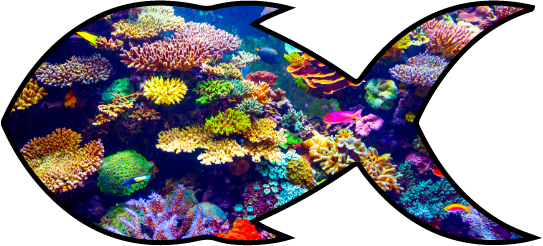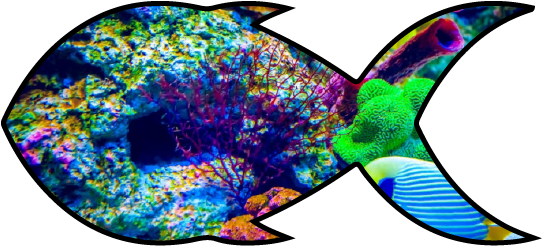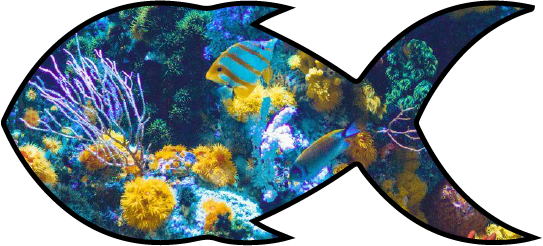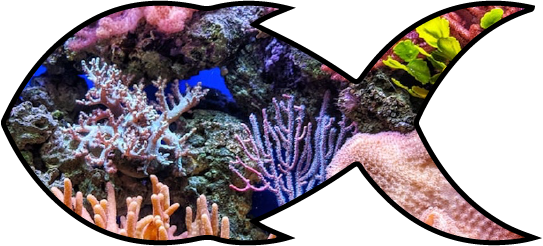
Sea of Sameness
May 24, 2022
Seaweed
May 24, 2022Direct Action Ambassadors Monitor Killer Whales For The Summer
In 2021, 160 young people (ages 18-30) formed Ocean Wise’s Ocean Bridge program, a national team engaged for eleven months in co-creating and delivering ocean and waterway service projects for their home communities. Ocean Wise Direct Action is exciting immersive program for in-depth learning and youth engagement with oceanic and aquatic conservation efforts across Canada. This national service-learning program will connect Canadian youth and young professionals with experts in marine and aquatic conservation organizations, empowering them with experiences in direct marine and aquatic conservation initiatives, adventurous opportunities for fieldwork, professional research projects, and educational and outreach programs.
One of our wonderful Direct Action partners, Cetus Research & Conservation, just finished hosting 4 Ocean Bridge Direct Action Youth for the summer!
CETUS Research and Conservation is an organization dedicated to protecting the lives of whales in the wild through research, education, and direct intervention. Founded in 2005, CETUS addresses the increasing endangerment of BC’s Killer Whales due to human activities and focuses directly on one of the three key contributors to Killer Whale endangerment: vessel traffic disturbance. They work in the field to protect whales and other marine mammals from harassment and harm. As vessel traffic in the region increases, CETUS’s work becomes more crucial to Killer Whale survival.
In 2021 four Ocean Wise Direct Action Ambassadors, Julia, Nikolay, Megan, and Simon, were based on West Cracroft Island, British Columbia with CETUS. Throughout the summer they assisted with the Robson Bight Warden program, monitoring Northern Resident Killer Whales. This immersive placement left our ambassadors zealous about their experiences and wanting to do more!
Read more about their individual stories below!
Megan Mckenzie
“I can’t say enough about my experience with the Cetus Research and Conservation Society, and my summer spent on West Cracroft Island on the traditional territory of the Kwakwaka’wakw peoples.
Every day I was either at Eagle Eye, CETUS’s land-based monitoring station, or out on the warden boat, educating boaters about the Robson Bight Michael Biggs Ecological Reserve and the Be Whale Wise guidelines. The 50-minute hike to Eagle Eye every morning and back had its fair share of rain, twisted ankles, wasp bites, and more, but the incredible view from platform always made up for it!
Everyday had its share of excitement and wildlife, from watching orcas pass by camp at dinner, to a humpback putting on a show outside of our tents first thing in the morning. The natural beauty and incredible biodiversity of the Johnstone Strait is not something I can describe with words! There is nothing like falling asleep to the sound of orca’s passing by camp, and I can’t wait until I am back again one day.”
Julia Roberts
“This summer I was located on the shared territories of the ‘Namgis, Tawit’sis, and Mamalilikala working with Cetus Research & Conservation Society doing data collection and conservation during my remote placement on West Cracroft island in the Robson Bight Warden Program.
We would hike to Eagle Eye every other day which was on a monitoring platform 50m up overlooking the Robson Bight Ecological Reserve. We used spotting scopes to collect data on all vessel traffic and whale activity in the Johnstone Strait from Canada day to Labour Day. The purpose of collecting data in this area is to understand orca’s habitat use and how vessel traffic patterns have changed over the years in a long-term dataset. When collecting data on orcas, the behaviour, location, travelling direction, and identification of the individuals are noted. Vessel data collection includes noting the type, speed, activity, location, and direction of everything that passes in our study area. Up on the cliff, we also were in communication with the wardens on the water to let them know whale locations, as well as if boats are in the reserve.
I’m incredibly grateful to have been part of the Direct Action program. As soon as I was finished this project, I was able to find a supervisor to do research at UVic on plainfin midshipman vocalizations, and this program allowed me to meet other like-minded people.”
Simon Grieshaber Otto
Warden Training, photo taken by Nicola Rammell.
Warden Training, photo taken by Nicola Rammell.
“When I first began my Direct Action placement on West Cracroft Island, I knew very little about the Northern Resident Killer Whales of British Columbia. Now, after spending the summer with Cetus Research and Conservation Society, I feel as though I’ve known them my whole life. During our summer on West Cracroft, we collected data on whale activity and soon learned which families of orcas would frequent the area and return day after day. We got to know these matrilines so well that we could easily identify the different whales and their relationship with one another.
It was magical to share a close whale encounter with kayakers and know that the experience would forever stay with us. Later, I began to give interpretative talks to visiting groups, and I surprised myself with how much I enjoyed sharing my knowledge of the Northern Residents with others.
At the end of the summer, it was incredibly hard to leave. I had spent weeks living in a stunning, remote location. I had seen whales by day and stars, like never before, by night. I had learned so much about whales, ocean ecosystems, life on Vancouver Island, and how I could handle new experiences and I made some lifelong friends along the way. The experience was simply wonderful, and I can’t thank Direct Action enough for their support.”
Nikolay Senilov
“Prior to starting this placement this summer, I was incredibly stressed out about the career path I had chosen. I knew ever since I began University that I wanted to become an environmental researcher, but I didn’t know where to start.
Fast forward a few months and an application for the Direct Action program, I was on a boat heading to West Cracroft Island, which would be my home for the next 2 months. Every day, at almost exactly 6:30 a.m., I was awakened not by my phone, but by either an Eagle or a Raven. Our main job was to collect data on orcas that were transiting through the area, but we also collected data on boats in the region.
Some days, if I was working on the boat, my job was to approach any vessel that entered the ecological reserve and remind them that entry is not permitted and ask them to leave. One thing that I often advocated for was doing a beach cleanup. From the boat, it was easy to spot massive pieces of Styrofoam that had washed up on shore. On more than one occasion, we would land on a remote beach and collect much more garbage than our boat could handle, slowly bringing it back to our camp. This and keeping traffic out of the ecological reserve were some of my favourite aspects of this placement. It was the most direct impact I had on the preservation of the environment, and I am so grateful that I was able to help.
Education, research, and direct action are all needed to protect and conserve the environment, and that’s why this was an invaluable experience that will live with me for the rest of my life”
What is Ocean Bridge?
Ocean Bridge brings together young Canadians with a wide range of backgrounds and experiences who are passionate about making a difference in their communities through the lens of oceans and waterway conservation. These Ocean Bridge Ambassadors from all across Canada work together, receive funding and learn from experts in marine conservation and education through an online platform and in-person learning journeys to develop service projects related to ocean health and ocean literacy in communities across the country. Ocean Bridge is an Ocean Wise initiative funded by the Government of Canada through the Canada Service Corps.
Ocean Bridge Direct Action is an exciting immersive program for in-depth learning and youth engagement with oceanic and aquatic conservation efforts across Canada. This national service-learning program will connect Canadian youth and young professionals with experts in marine and aquatic conservation organizations, empowering them with experiences in direct marine and aquatic conservation initiatives, adventurous opportunities for fieldwork, professional research projects, and educational and outreach programs.
Canada Service Corps
Canada Service Corps is designed to generate a culture of service among young Canadians; concrete results for communities; personal growth through participation in a diverse team of peers; and lasting impacts on participants. Visit www.canada.ca/CanadaServiceCorps to learn more and how to get involved in the way that works best for you.


